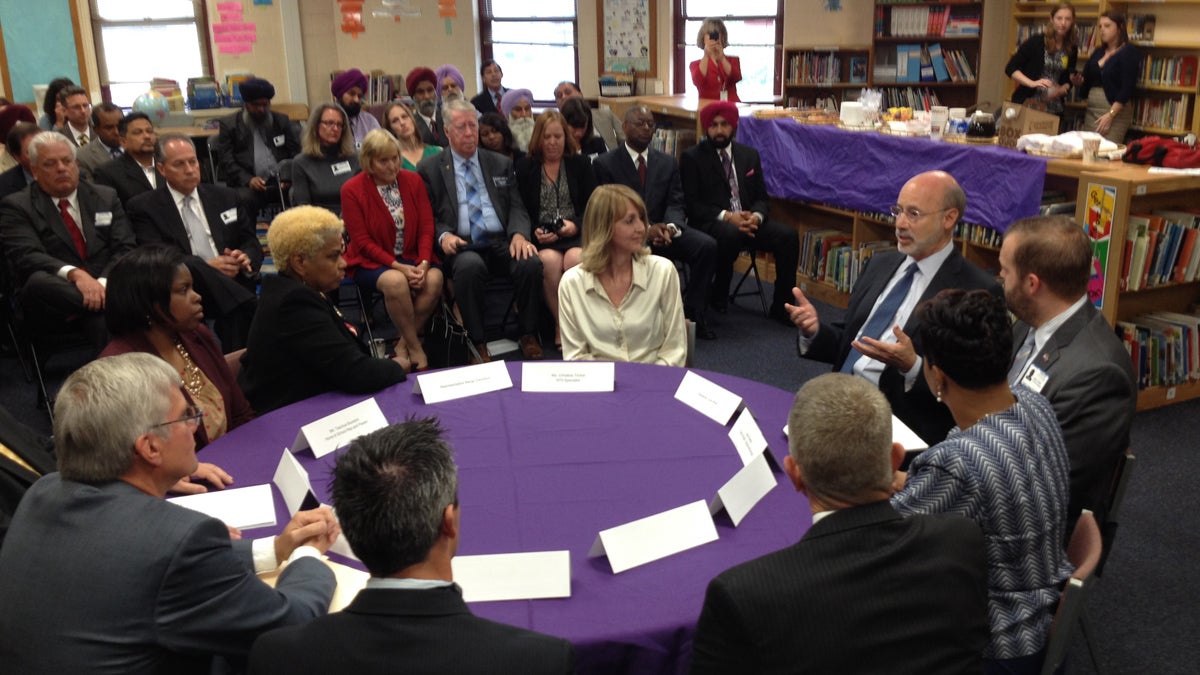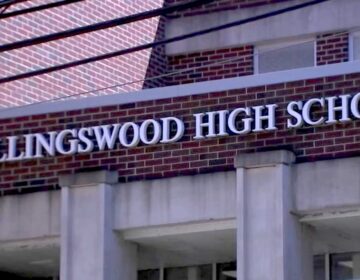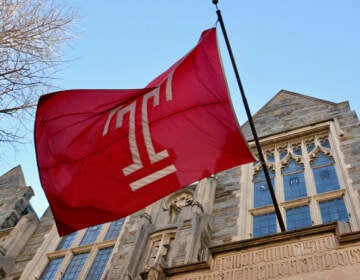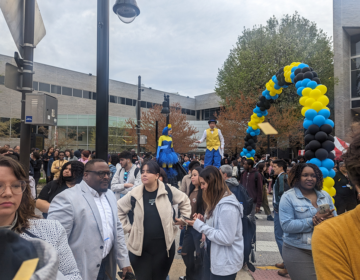Pitching plan for education funding, Wolf visits Upper Darby school
Listen
Gov. Tom Wolf talks to educators and residents about his proposed budget at Stonehurst Hills Elementary School in Upper Darby, Pa. (Bill Hangley/WHYY)
Gov. Tom Wolf says a vote for his education budget will be a vote for lower property taxes in Pennsylvania.
But while Republicans say they’d welcome the tax relief, they’re not sold on the governor’s plan to increase spending overall.
Wolf was in Delaware County Thursday to stump for his education plan, which would lower property taxes, raise some income and sales taxes, and increase overall spending by a billion dollars.
He visited the Stonehurst Hills Elementary School in Upper Darby where educators said their school district is still reeling from former Gov. Tom Corbett’s budget cuts. Rising local property taxes haven’t been able to fill the gaps, they said.
“The tax environment is very high,” said Taschua Buckson, a mother of two whose family moved to Upper Darby because of the schools’ excellent reputation. “There are a lot of people moving out. There’s a lot more renters moving in, And taxes are as high as $11,000 and $12,000 a year. That’s high.”
Buckson told Wolf that, between state budget cuts taking a toll on academics and local property taxes climbing ever higher, her family might consider a change of address.
Local school officials agreed. These days, they said, even a modest rowhome can easily rack up $6,000 to $8,000 a year in taxes. The dynamic they fear is a familiar downward spiral: As taxes rise and schools decline, homes will become less valuable and overall tax revenue will drop — forcing a choice between raising taxes on those who remain or letting schools suffer.
Wolf said that dead-end dynamic has to change.
“I think property tax relief is part of the overall reform of the system so that they don’t have to pay that much,” he said. “That’s why my plan calls for, on average, 50 percent reduction in property taxes in this area. Think about what that means for the person who’s paying that — 50 percent.”
Wolf said that by shifting from property taxes to income taxes, and establishing a funding formula to guide statewide distribution, Pennsylvania can level the playing field for districts statewide.
On hand to hear his pitch was state Rep. Jamie Santora, a Republican. Like Buckson, he told Wolf that Upper Darby needs more school funding as well as property tax relief. But when it comes to the state budget, he still prefers a Republican plan — known as the Saylor plan, for York’s Rep. Stan Saylor — that would keep the total amount of state education spending right where it is.
“The governor’s plan, if you really look at it, you’re getting 70 cents in new taxes, and 30 cents in relief. And that doesn’t work for me,” said Santora. “The difference in the plans is, [the Saylor plan] is a dollar-for-dollar tax relief.”
Despite the partisan differences, Santora said he expects the two sides will able find a compromise that allows for some reduction of local property taxes. By law, legislators must approve a budget by the end of June.
WHYY is your source for fact-based, in-depth journalism and information. As a nonprofit organization, we rely on financial support from readers like you. Please give today.




